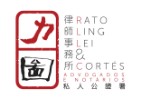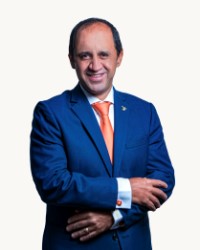Corporate M&A 2022
Macau
Trends and Developments
M&A Market
The M&A market in the Macau Special Administrative Region (the Macau SAR) continued to experience significant challenges in 2021 and the first quarter of 2022, especially due to the COVID-19 pandemic. Macau has implemented moderate measures over certain mainland areas from time to time, adapting to an ever-changing reality. The gateways to Macau’s cosmopolitan neighbour Hong Kong, and the rest of the world, have been severely impacted.
The Macau SAR government is committed to continuously improving the pandemic preventive measures. Given the uncertainty of the economic recovery, the government has also continued to launch a series of welfare measures, which may include the continuation of the e-voucher programme for the population of Macau, as well as policy of safeguarding employment for local residents and the offering of subsidised training schemes.
Central and local governments are still striking a compromise between control of the pandemic, social stability and the growth of the economy.
Gaming operators continue to be the largest employers in the region and have shown willingness to assist local SMEs with several public initiatives in which the focus has been to keep local markets, deprived of tourists, alive. A new law on gaming is expected to be enacted on or before June 2022. This could be a game-changing development, as the Macau government finally tackles the diversification of the local economy seriously, and pursues sustainable development, limiting the gaming industry in terms of its weight in the economy.
Macau had 7.7 million tourists in 2021, which is approximately 80% less than the all-time record set in 2019, with almost 40 million visitors crossing the region’s air, sea and land borders; and approximately 30% more than the number in 2020 (almost 5.8 million tourists).
Some steps have been taken towards the announced international public tender for new gaming concessions. Specifically, there were acquisitions involving gaming promoters in a process of market consolidation in order to deal with restrictions imposed by the central government on the gaming destinations of its citizens.
Macau has seen some other interesting moves in terms of M&A, especially due to consolidation, M&A at the foreign holding companies level, including in the insurance industry and cashless payment platforms, the most publicised being the acquisition of MPay by a company of the Alibaba group.
There are no statistics available concerning the M&A market. Nonetheless, even with the impact of COVID-19, there were 5,434 companies incorporated in Macau in 2021, with the wholesale and retail trade, together with the business services sectors, representing more than half of those companies, with each taking up approximately a quarter of the newly incorporated companies. There were 777 Macau companies incorporated with capital from the Greater Bay Area in a total of 1,245 incorporated with capital from China.
Macau continued to see its financial institutions reinforcing and expanding their M&A teams, so as to develop opportunities in other markets such as the wider Portuguese-speaking world, as well as Central and South Asia.
Key trends
Central government is likely to encourage Chinese companies to continue increasing their presence in the Macau SAR by purchasing shareholding positions and replacing other foreign investors in the shareholding structures of Macau-incorporated companies.
Banking, energy, telecommunications and public transportation have been sectors in which Mainland Chinese investors have either entered or increased their shareholding position. This trend may be seen as a means to explore opportunities in Portuguese-speaking markets through a Macau-based platform.
The Greater Bay Area Plan highlighted Macau’s roles as a global tourism and leisure centre, as well as an economic and trade co-operation platform between China and Lusophone countries. These are two factors to take into consideration when envisaging the future of M&A transactions in the area.
Further deepening the implementation of the Greater Bay Area Plan of the central government of the People’s Republic of China, the central authorities have issued a general plan for building a Guangdong-Macao In-Depth Co-operation Zone in Hengqin. Hengqin is only 34 nautical miles from Hong Kong and a mere 187 metres from Macau and has seen increasing numbers of Macau companies establishing a form of representation or subsidiaries in the area in recent years. Considering the tiny area of Macau, Hengqin is likely to see Macau M&A moves in the years to come, as it has in place measures concerning the acquisition of land, industrial construction and infrastructure, and allows for access, by Macau businesses and employees, to public resources. It has also established financial co-operation with local Macau banks and insurers who have opened, or are planning to open, headquarters to facilitate economic development.
It is worth mentioning that cross-boundary controls have been simplified, and new projects have been or will be completed in the near future within Hengqin.
Key industries
Macau is heavily dependent on tourism and gaming. In 2020, GDP contracted 56.3% year-on-year in real terms, mainly because of the disruption to travel due to the restrictions imposed by the local government to fight the pandemic. The pandemic situation in 2021 remained volatile but improved compared to 2020. With a pick-up in total demand, the economy of Macao grew by 18.0% year-on-year in real terms in 2021. Still, the pandemic has had serious consequences for the gaming and entertainment industry.
It is very likely that the Macau government will launch the international public tender to award new concessions for the operation of casino games before the end of the extension already announced to the current concession contract; ie, before 31 December 2022. The international public tender will take place already with the amendment gaming law in force.
It will be a decisive moment for the economy of the region, which – together with the impact of COVID-19 – may boost potential mergers and acquisitions in the gaming and entertainment space. Furthermore, there have been important recent developments in the gaming intermediary business.
Finance and banking, insurance, IT and other tech industries, traditional Chinese medicine, health technology and cultural industries are likely to be the most active concerning M&A transactions in 2022. The Macau government seems to consider the diversification of the economy as one of the most important points for the development of the region.
Under a draft law proposal, the “new” public policy for the industry aims to ensure that:
- the functioning and operation of casino games of chance are conducted under the premise of safeguarding national security and the security of the Macau SAR;
- adequate diversification and sustainable development of the economy of Macau is promoted;
- casino games of chance operate and function in a fair and honest manner, and are free from criminal influence;
- the function and operation of casino games of chance is in accordance with the policies and mechanisms of the Macau SAR with regard to combating illegal cross-border capital flows and preventing money laundering;
- the dimension and operation of casino games of chance, the practice of games of chance and the entry into casinos are subject to legal restrictions;
- those involved in monitoring, managing and operating casino games of chance are suitable for the performance of these functions; and
- the interests of the Macau SAR in collecting taxes from the casino operations are duly protected.
Mass-market gamers are on the verge of replacing VIPs once and for all, which has given rise to concerns for all stakeholders involved.
However, the new policy might allow the diversification of Macau’s economy beyond the gaming industry (which has been a long-awaited goal of the local government and a requirement of the central government).
Developments
Guangdong-Macao In-Depth Co-operation Zone in Hengqin
The Guangdong-Macao In-Depth Co-operation Zone (the “Zone”) in Hengqin is, among other strategic positions, a new platform to boost Macau’s economic diversification. The design and vision of this Zone is mentioned in the central government’s 14th Five Year Plan, the Macau government’s second five-year plan, and the general plan for building a Guangdong-Macao In-Depth Co-operation Zone in Hengqin (the “Plan”).
As previously mentioned, the Chinese government has voiced its support for the diversification of Macau’s economy and it is the government’s intention to:
- develop, in Hengqin, sci-tech and R&D facilities as well as high-end manufacturing;
- promote traditional Chinese medicine among other signature businesses of Macau;
- promote industries including culture and tourism, conventions and exhibitions; and
- promote modern finance.
The general goals have been defined for completion by 2024, 2029 and 2035, respectively.
Regarding the development of scientific and technological research and high-end manufacturing industries, the Plan mentioned the construction of science and technology infrastructure, the organisation and implementation of international “mega science” programmes and projects, and that the areas of focus are to be integrated circuits, electronic components, new materials, new energy sources, big data, artificial intelligence, internet of things (IoT), and biomedical industries.
Regarding the development of Macao-branded industries, such as traditional Chinese medicine, the Plan puts forth the idea of developing Hengqin to be the world’s premium traditional Chinese medicine product-manufacturing and export base, and the use of “production supervised in Macao”, “produced in Macao” or “designed in Macao” signs on traditional Chinese medicine products, food products and health products approved and registered in Macao and produced in the Zone. In addition, the development of rough diamond processing and the establishment of a world-class rough diamond and precious stone trading centre were also highlighted in the Plan.
Regarding the development of cultural tourism, conventions and exhibitions, and commercial and trade industries, the development of Hengqin into a high standard international leisure tourism island, the organisation of international premium-quality consumer goods expos, the facilitation of granting visas (or travel permits) in accordance with the regulations on convention and exhibition working staff, professional exhibitors, and domestic and foreign visitors, as well as the establishment of a quality imported consumer product trading centre were also foreseen in the Plan.
Regarding the development of a modern financial industry, the Plan announced support to establish a financial services platform between China and Portuguese-speaking countries, to set up multi-currency venture capital funds or private equity investment funds, to facilitate and encourage cross-border renminbi settlement, as well as wealth management, bond market trading, and financial leasing in the Zone. In addition, it is expected that the access threshold for Macao-invested financial institutions to set up banking and insurance institutions in the Zone will be lowered and cross-border motor vehicle insurance, cross-border medical insurance, and letter-of-credit insurance businesses in the Zone will be developed.
All of the above initiatives may attract new business and a new type of investment, which in turn may result in significant new opportunities for local and foreign investors.
Macau as a platform for Portuguese-speaking countries to access China
The role of Macau as a platform between China and Portuguese-speaking countries – which represent a population of more than 200 million people, Portuguese being the most spoken language within the southern hemisphere – was defined by the central government almost two decades ago. The local government understands that building an international hub for trade between China and Portuguese-speaking countries will contribute to Macau’s becoming essential for trade activities between the two blocks.
The goal is to develop a modern financial industry and a service platform for trade co-operation between China and Lusophone countries, all at the service of Greater Bay Area initiatives and the Plan, promoting, innovating, and developing technologies in the financial sector. The government aims to construct a tangible and intangible financial infrastructure, and to improve the legal regime for the financial sector.
It is expected that these goals will enhance the appetite of Chinese and international players, especially those with interests in the Portuguese-speaking space, to establish entities in Macau or to acquire Macau financial and financial services entities.
This shall be accompanied by certain reforms in financial legislation, which will need to be amended and/or put in place.
Bond markets
In the Policy Address for 2022, the Macau SAR government has prioritised attracting entities from Mainland China and Portuguese-speaking countries to the securities market in Macau, as well as their participation in renminbi-financing operations.
As a way of developing the market, the government intends to cancel the current system of approval of bond issuance and introduce new types of investment bank licence. But it does not stop there: the Macau government intends to boost appropriate diversification of the economy and the modernisation of the financial sector, in line with the national economic development cycle.
To this end, it intends to develop the aforementioned bond market, but also financial management and leasing activities, as well as promoting the construction of a cross-border settlement centre in renminbi, strengthening green financial activities.
In December 2021, the Macau Central Securities Depository (CSDM) was launched, which is a key part of this planned financial infrastructure, indispensable for the mature international bond markets. The CSDM is a key new source of impetus for the modern financial market sector and the proper diversification of the economy.
Expectations are high for the current public policy and its aims of diversifying the economy, which has always depended almost exclusively on the twin pillars of tourism and gaming.
Rato, Ling, Lei & Cortés – Advogados | Lektou
Avenida da Amizade, 555
Macau Landmark
Office Tower, 23rd Floor
Macau
+853 285 623 22
+853 285 809 91
mail@lektou.com www.lektou.com


